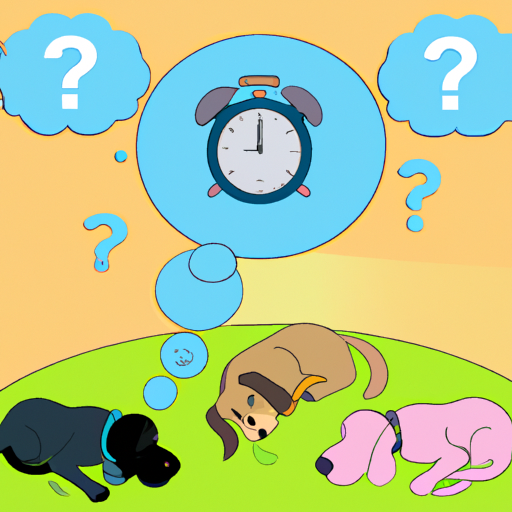Understanding Your Dog’s Sleep Cycle
You might wonder why your furry friend seems to doze off more often than you do. It’s not laziness, nor lack of motivation. Dogs, especially puppies and senior dogs, require more sleep than humans. In fact, on average, dogs sleep for about 12 to 14 hours per day. This is due to their unique sleep cycle, which differs from ours.
| Age Group | Average Sleep Duration |
|---|---|
| Puppies | 18-20 hours |
| Adult Dogs | 12-14 hours |
| Senior Dogs | 14-18 hours |
The Impact of Activity Level
Your dog’s activity level also plays a significant role in how much they sleep. Working dogs may nap less because they’re engaged in tasks throughout the day. Conversely, less active or sedentary dogs might sleep more out of boredom. So, if you’re worried about your pet’s excessive napping, try increasing their physical activity. A more active lifestyle can contribute to a healthier sleep schedule.
- High-energy activities for your dog:
- Fetch
- Tug-of-war
- Agility training
- Hide and Seek
How Diet Influences Sleep
Just like in humans, a dog’s diet can significantly influence their sleep patterns. A diet high in sugar or carbs can cause fluctuation in blood sugar levels, leading to more frequent naps. Feeding your dog a balanced, nutritionally sound diet can promote healthier sleep habits.
- Foods that promote good sleep in dogs:
- Turkey
- Fish
- Sweet potato
- Pumpkin
- Blueberries
The Role of Health and Age
Health conditions and age can also affect your dog’s sleep. Older dogs, puppies, and dogs with certain health conditions may require more sleep than a healthy adult dog. If your dog’s sleep pattern changes dramatically or if they seem excessively lethargic, it’s worth consulting with your vet to rule out any health issues.
Breed-Specific Sleep Needs
Lastly, some breeds naturally require more sleep than others. Larger breeds like Saint Bernards, Mastiffs, and Newfoundlands tend to sleep more. Meanwhile, smaller breeds and working breeds may sleep less. Knowing your breed’s specific needs can help you understand their sleep patterns better.
FAQ
Q: Is it normal for my dog to sleep all day?
A: While dogs sleep more than humans, they shouldn’t be sleeping all day. If your dog is lethargic and unresponsive, it’s best to consult with a vet.
Q: Can a change in diet affect my dog’s sleep?
A: Yes, a diet high in sugar or carbs can lead to fluctuating blood sugar levels, causing your dog to nap more frequently.
Q: How can I ensure my dog is getting enough exercise?
A: Regular walks, playtime, and mental stimulation can help ensure your dog is getting enough exercise.
Q: Do different breeds have different sleep requirements?
A: Yes, larger breeds tend to sleep more than smaller breeds. Working breeds may also have different sleep needs.



